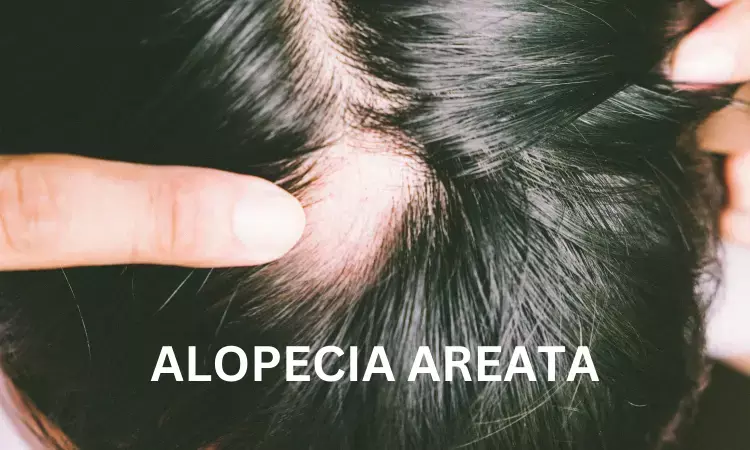- Home
- Medical news & Guidelines
- Anesthesiology
- Cardiology and CTVS
- Critical Care
- Dentistry
- Dermatology
- Diabetes and Endocrinology
- ENT
- Gastroenterology
- Medicine
- Nephrology
- Neurology
- Obstretics-Gynaecology
- Oncology
- Ophthalmology
- Orthopaedics
- Pediatrics-Neonatology
- Psychiatry
- Pulmonology
- Radiology
- Surgery
- Urology
- Laboratory Medicine
- Diet
- Nursing
- Paramedical
- Physiotherapy
- Health news
- Fact Check
- Bone Health Fact Check
- Brain Health Fact Check
- Cancer Related Fact Check
- Child Care Fact Check
- Dental and oral health fact check
- Diabetes and metabolic health fact check
- Diet and Nutrition Fact Check
- Eye and ENT Care Fact Check
- Fitness fact check
- Gut health fact check
- Heart health fact check
- Kidney health fact check
- Medical education fact check
- Men's health fact check
- Respiratory fact check
- Skin and hair care fact check
- Vaccine and Immunization fact check
- Women's health fact check
- AYUSH
- State News
- Andaman and Nicobar Islands
- Andhra Pradesh
- Arunachal Pradesh
- Assam
- Bihar
- Chandigarh
- Chattisgarh
- Dadra and Nagar Haveli
- Daman and Diu
- Delhi
- Goa
- Gujarat
- Haryana
- Himachal Pradesh
- Jammu & Kashmir
- Jharkhand
- Karnataka
- Kerala
- Ladakh
- Lakshadweep
- Madhya Pradesh
- Maharashtra
- Manipur
- Meghalaya
- Mizoram
- Nagaland
- Odisha
- Puducherry
- Punjab
- Rajasthan
- Sikkim
- Tamil Nadu
- Telangana
- Tripura
- Uttar Pradesh
- Uttrakhand
- West Bengal
- Medical Education
- Industry
Combo of methotrexate and low dose prednisone benefits alopecia areata patients: JAMA

France: An original investigation published in JAMA Dermatology has concluded that, pertaining to the availability of treatment modalities for alopecia areata totalis (AT) or universalis (AU, methotrexate combined with low-dose prednisone is considered to be an inexpensive and effective therapeutically.
Data from previous studies have shown poor therapeutic results among AT or AU, which are the severe and disabling types of alopecia areata (AA). There is a probability that one of the inexpensive treatment approaches, methotrexate, can be effective in AU and AT.
The researchers in the present study answered this fundamental question in their research.
The summary of the study is explained under the given points:
- 45 Patients were given methotrexate (25 mg/wk) for six months.
- There were 44 patients on placebo.
- Those with more than 25% hair regrowth (HR) at month 6 continued their treatment until month 12.
- Those with less than 25 % of hair regrowth were rerandomized: methotrexate plus prednisone (20 mg/d for three months and 15 mg/d for three months) or methotrexate plus placebo of prednisone.
- Methotrexate alone allowed partial hair growth in chronic AT or AU patients.
- Combining methotrexate with low-dose prednisone allowed complete HR in 31% of patients.
- The quality of life was significantly improved in patients who achieved a complete response compared to non-responders.
- Due to complaints of nausea and fatigue in the methotrexate group, few patients discontinued the study; however, there was no observed adverse effect.
Researchers said, “We studied the efficacy of methotrexate alone or combined with low-dose prednisone in 89 patients to determine hair growth potential in the most severe and disabling types of alopecia areata and found the latter in combination to be beneficial.”
The results of our study show that complete hair regrowth was seen in a few patients with methotrexate alone. Still, its combination with low-dose prednisone demonstrated complete or almost complete regrowth, with a Severity of Alopecia Tool [SALT] score <10 in 20% to 31.2% of patients.
At last, they also wrote that the results are of the same order of magnitude as reported with JAK inhibitors recently, with a much lower cost.
Further reading:
Joly P, Lafon A, Houivet E, et al. Efficacy of Methotrexate Alone vs Methotrexate Plus Low-Dose Prednisone in Patients With Alopecia Areata Totalis or Universalis: A 2-Step Double-Blind Randomized Clinical Trial. JAMA Dermatol. Published online March 08, 2023. doi:10.1001/jamadermatol.2022.6687
BDS, MDS in Periodontics and Implantology
Dr. Aditi Yadav is a BDS, MDS in Periodontics and Implantology. She has a clinical experience of 5 years as a laser dental surgeon. She also has a Diploma in clinical research and pharmacovigilance and is a Certified data scientist. She is currently working as a content developer in e-health services. Dr. Yadav has a keen interest in Medical Journalism and is actively involved in Medical Research writing.
Dr Kamal Kant Kohli-MBBS, DTCD- a chest specialist with more than 30 years of practice and a flair for writing clinical articles, Dr Kamal Kant Kohli joined Medical Dialogues as a Chief Editor of Medical News. Besides writing articles, as an editor, he proofreads and verifies all the medical content published on Medical Dialogues including those coming from journals, studies,medical conferences,guidelines etc. Email: drkohli@medicaldialogues.in. Contact no. 011-43720751


